5 Reasons Your Hair Is Going Gray Prematurely
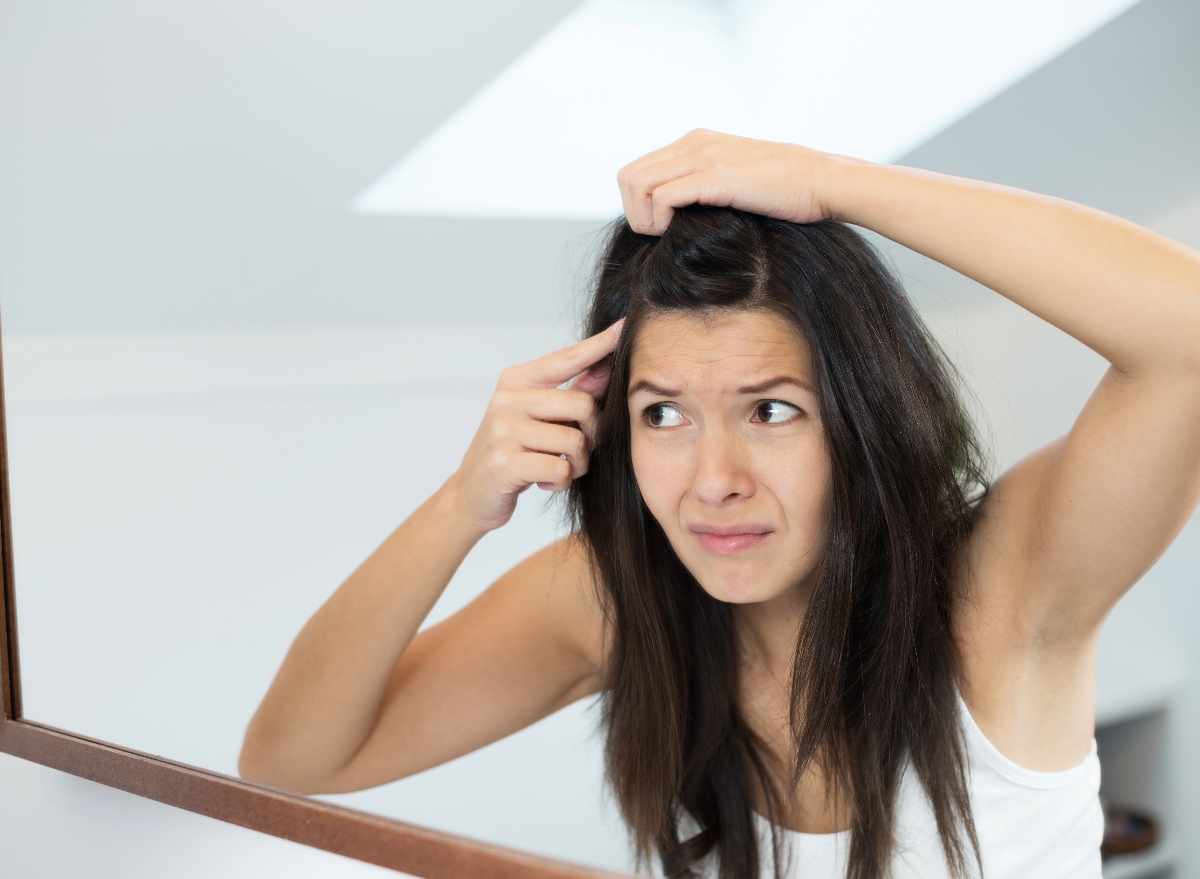
Picture this: It’s morning, and you’re going through your wellness routine. You slip into your fluffy slippers and head to the kitchen to whip up a soothing matcha latte. Next on the agenda is skincare. You start washing your face, and as you massage the cleanser into your skin, something shiny and gray catches your eye in the reflection—*gasp!*—more than a few stray gray hairs, that is. It naturally causes your jaw to drop and wonder why your hair is going gray prematurely. Don’t fret, because we spoke with Mike Bohl, MD, MPH, ALM, a member of our Medical Expert Board and a certified personal trainer and nutrition coach, who dishes the scoop. But before we spill the tea, let’s get one thing straight about hair.
Contrary to what you may believe, most of the gray hair you accumulate isn’t correlated to stress, Harvard Health Publishing explains. When a hair follicle generates hair, the color is what it is. So if a strand of hair takes on the hue of red, brown, or blonde, for example, the color will not change. Your hair follicles don’t create as much color as they grow older. Needless to say, as your hair proceeds through its cycle of death and rebirth, it has a greater chance of growing back with a gray hue after you hit 35.
“While going gray may have a lot to do with things outside of your control—like your genetics— there are a couple of things you can do to give yourself the best chance of postponing graying as long as you can,” Dr. Bohl explains. “Eating a varied, nutritious diet that’s full of vitamins and minerals can help protect against deficiencies, and quitting smoking and managing other forms of stress can also be beneficial for your hair health.”
If your hair is going gray prematurely, there are a few things that could be going on behind the scenes. Keep reading to learn what Dr. Bohl has to say, and when you’re finished, don’t miss these 7 Ways To Minimize & Smooth Neck Wrinkles Before 40.
Genetics
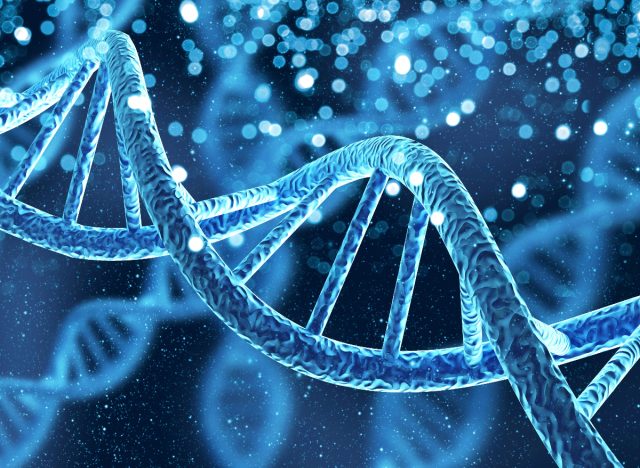
Genetics can impact many things in your body, one of them being the potential to get gray hair sooner than you’d like. “One of the biggest factors when it comes to gray hair is your genetics,” Dr. Bohl tells us. “If you have a family history of going gray at an earlier age or you have certain genes, you could see yourself going gray earlier than your friends.”
B12 deficiency

Following proper nutrition and taking the right vitamins are key to keeping your hair in good health. Another reason why your hair is going gray prematurely could be because you’re deficient in vitamin B12. “This deficiency can weaken hair follicle cells and impact the production of melanin,” Dr. Bohl says.
If you are vitamin B12 deficient, you may feel tired, weak, or lightheaded, WebMD explains. You may also deal with nerve issues such as tingling or numbness, vision loss, muscle weakness, diarrhea, constipation, depression, memory loss, or issues walking.
Thyroid disease
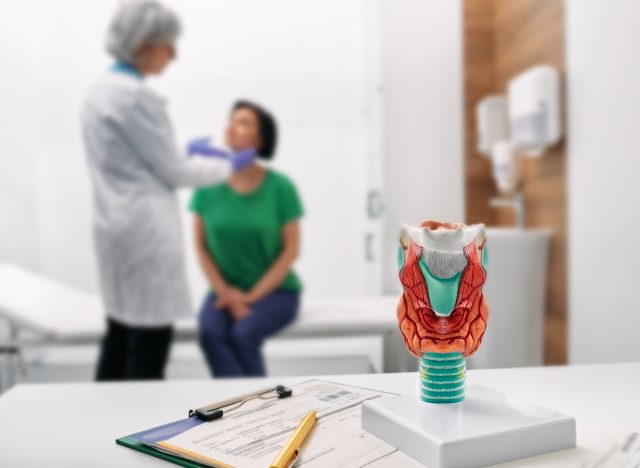
“The thyroid impacts your metabolism and can also have an effect on your hair,” Dr. Bohl explains. “If you have an over- or under-active thyroid, you could have grayer hair earlier in life.”
If you think you may have thyroid disease, contact your healthcare provider as soon as possible. According to the Cleveland Clinic, symptoms of hyperthyroidism (an overactive thyroid) can include difficulty sleeping, nervousness, irritability, weight loss, heat sensitivity, and muscle weakness/tremors. Symptoms of hypothyroidism (an under-active thyroid) can include fatigue, weight gain, frequent and heavy periods, dry and coarse hair, forgetfulness, and being intolerant to the cold.
Another underlying medical condition
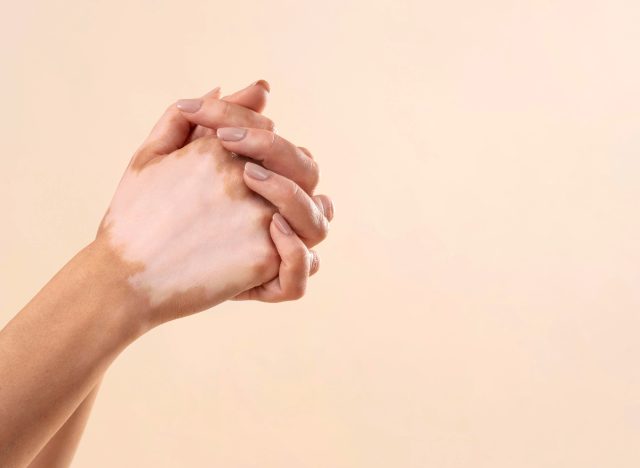
Besides thyroid disease, you could be dealing with another underlying condition that’s the culprit behind your early grays. For instance, diseases like vitiligo result in losing your skin color, which appears in patches. This condition can impact skin all over your body, along with your hair and your mouth, the Mayo Clinic explains.
The hue of your hair, along with your skin color, typically depend on melanin. Vitiligo happens when the cells that create melanin aren’t functioning or die.
Smoking
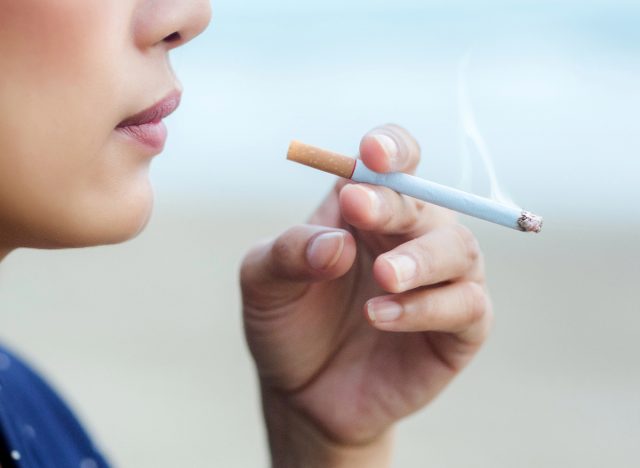
Smoking can bring on a variety of terrifying health risks, such as heart disease, stroke, cancer, diabetes, lung disease, and tuberculosis. According to the Centers for Disease Control and Prevention (CDC), over 16 million individuals in the U.S. are dealing with a smoking-related disease. For each person who passes away from smoking, a minimum of 30 individuals live with a major illness due to smoking.
In addition to being incredibly hazardous to your health and overall well-being, smoking could be why you’re getting gray hair early. “Smoking can constrict blood vessels and also leads to the build-up of toxins inside the body, which can cause hair to go gray,” explains Dr. Bohl.









